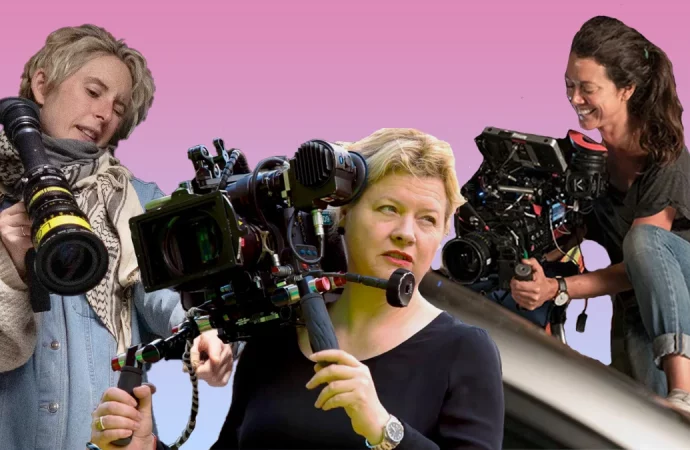Introduction Cinema is constantly evolving, thanks in large part to visionary female filmmakers who are breaking new ground in storytelling, directing, and production. This article highlights 10 remarkable women shaping the future of cinema through their creativity, resilience, and dedication. With each filmmaker’s unique perspective and voice, they are changing the landscape of the film
Introduction
Cinema is constantly evolving, thanks in large part to visionary female filmmakers who are breaking new ground in storytelling, directing, and production. This article highlights 10 remarkable women shaping the future of cinema through their creativity, resilience, and dedication. With each filmmaker’s unique perspective and voice, they are changing the landscape of the film industry.
The Rise of Female Filmmakers
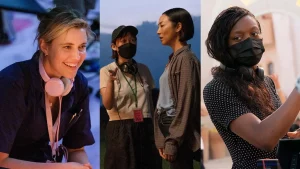
Image by: Yandex.com
In recent years, female filmmakers have gained more recognition in the film industry. Many talented women are stepping into roles as directors, writers, and producers. This rise is not just a trend; it shows a real change in how the film world views women’s contributions. Films by female directors are receiving awards and praise, proving that their stories resonate with audiences everywhere.
Benefits of Female Filmmakers
The presence of female filmmakers brings many benefits to cinema. They offer new perspectives and tell stories that often go unheard. This diversity in storytelling helps everyone feel represented on screen. Female filmmakers also inspire young girls and women to pursue their dreams in filmmaking. Seeing women succeed encourages others to believe they can do it too.
A Growing Community of Support
As female filmmakers rise in the industry, they are building a supportive community. Many women are helping each other by sharing their experiences and resources. This network allows filmmakers to connect, collaborate, and uplift one another. With more women working together, they can create powerful films that reflect diverse voices and stories.
Changing the Narrative
Female filmmakers are changing the narrative in cinema. They are telling stories that focus on women’s experiences and issues. Films that explore topics like love, family, and career challenges resonate with many viewers. By highlighting these stories, female filmmakers are showing that women’s experiences are just as important as men’s, adding depth to the film landscape.
The Rising Influence of Female Filmmakers
Historically, cinema has been a male-dominated field, but today, female filmmakers are making their mark across genres and mediums. From action-packed thrillers to heartfelt dramas, these women are breaking stereotypes and proving that diverse voices lead to richer stories. This influence is only expected to grow as more women step into roles of authority and creative control.
The Impact of Technology
Technology is playing a big role in the rise of female filmmakers. With the growth of affordable filmmaking equipment and online platforms, it’s easier for women to share their stories. Social media also helps filmmakers reach wider audiences. This access allows female filmmakers to bypass traditional barriers and connect directly with viewers, increasing their impact.
12 Female Filmmakers of Cinema
1. Kelly Reichardt: Quiet Yet Impactful Storytelling
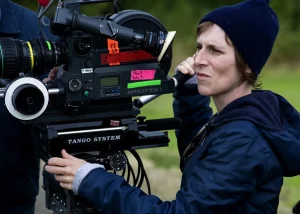
Image by: Yandex.com
Kelly Reichardt is celebrated for her minimalist style. Her films, such as First Cow and Certain Women, focus on everyday life and small moments that reveal deeper truths. Reichardt’s slow, thoughtful approach invites audiences to reflect on the characters and their experiences. Her work demonstrates that powerful stories don’t always have to be loud or flashy.
2. Greta Gerwig: Redefining Romance and Drama
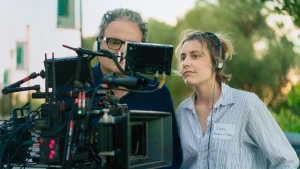
Image by: Yandex.com
Greta Gerwig has carved out a space for herself with her delicate touch on complex emotional landscapes. Known for films like Lady Bird and Little Women, Gerwig tells stories that capture the struggles and triumphs of womanhood with authenticity and empathy. Her approach brings a fresh, introspective view to classic narratives.
3. Ava DuVernay: Bringing Social Issues to the Big Screen
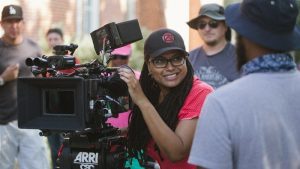
Image by: Yandex.com
Ava DuVernay’s work is both artistically brilliant and socially aware. With films like Selma and the Netflix series When They See Us, DuVernay tackles racial injustice and social inequality, amplifying marginalized voices. Her commitment to social change has set a new standard for filmmakers interested in combining art with activism.
4. Chloé Zhao: Blending Fantasy with Realism
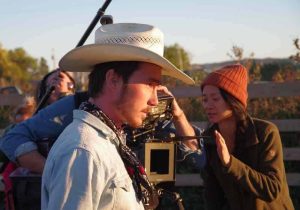
Image by: Yandex.com
Chloé Zhao gained global recognition with Nomadland, a poetic exploration of American life on the road. Her style blends realism with fantasy, as seen in her work on Eternals. Zhao’s storytelling invites viewers into worlds that feel familiar yet extraordinary, bridging the gap between big-budget films and intimate indie cinema.
5. Lulu Wang: Celebrating Cultural Narratives
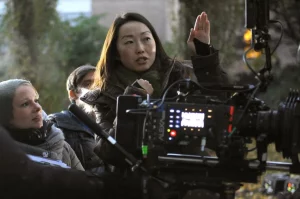
Image by: Yandex.com
Lulu Wang brings cultural stories to mainstream audiences, notably with The Farewell. By highlighting the nuances of cultural identity, Wang creates an emotional connection that resonates with a broad audience. Her ability to weave humor with depth provides a refreshing perspective on family and identity.
6. Emerald Fennell: Crafting Dark, Unconventional Stories
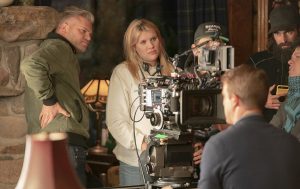
Image by: Yandex.com
With Promising Young Woman, Emerald Fennell challenged viewers’ perceptions of revenge and justice. Her storytelling is daring, with a dark sense of humor that engages audiences in difficult but important conversations about gender and power. Fennell’s style is as bold as it is thought-provoking, making her a filmmaker to watch.
7. Nia DaCosta: Reinventing the Horror Genre
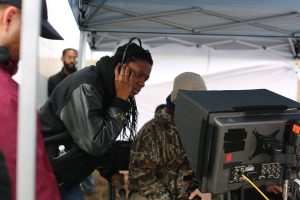
Image by: Yandex.com
Nia DaCosta is redefining horror with her remake of Candyman. Her work explores social themes within horror, blending scares with substance. DaCosta’s approach to horror reflects a trend in genre filmmaking where real-world issues are examined through fear and suspense.
8. Céline Sciamma: Telling Stories of Love and Identity
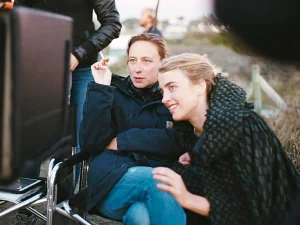
Image by: Yandex.com
French filmmaker Céline Sciamma is known for her explorations of love, gender, and identity. Films like Portrait of a Lady on Fire showcase her delicate and thoughtful approach to relationships. Sciamma’s work is filled with subtle, powerful moments that invite viewers to reflect on their own identities and emotions.
9. Kathryn Bigelow: Breaking Barriers in Action Cinema
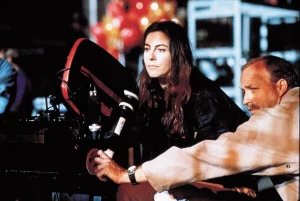
Image by: Yandex.com
As the first woman to win an Oscar for Best Director, Kathryn Bigelow has paved the way for female filmmakers in action cinema. Known for films like The Hurt Locker and Zero Dark Thirty, Bigelow’s work combines intense action with ethical inquiries, challenging the boundaries of the genre.
10. Marielle Heller: Exploring Inner Lives
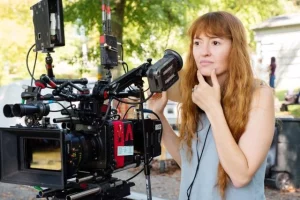
Image by: Yandex.com
Marielle Heller focuses on introspective, character-driven stories. Her films, such as Can You Ever Forgive Me?, dive into complex emotions and the often-overlooked lives of ordinary people. Heller’s subtle storytelling allows audiences to experience the full spectrum of human emotions.
11. Rebecca Hall: Acting and Directing with Passion
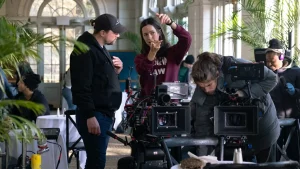
Image by: Yandex.com
Rebecca Hall is a talented actress who has made her mark as a director with films like Passing. Her work often explores themes of race, identity, and social norms. Hall’s ability to direct her own projects allows her to tell stories that resonate with her personally. By stepping behind the camera, she is paving the way for more diverse voices in filmmaking.
12. Sophie Hyde: Exploring LGBTQ+ Stories

Image by: Yandex.com
Sophie Hyde is a filmmaker who focuses on LGBTQ+ stories and relationships. Her film Good Luck to You, Leo Grande, follows a woman on a journey of self-discovery and sexual freedom. Hyde’s work highlights the importance of representation in film, showing that love and desire come in many forms. Her films invite audiences to see the world through a different lens.
Inspiring Future Generations
Female filmmakers serve as role models for future generations. Young girls can see successful women in the industry and feel inspired to follow their dreams. Filmmakers like Greta Gerwig and Ava DuVernay are showing that it’s possible to make meaningful films while also making a difference in the world. This inspiration encourages young women to explore careers in film and storytelling.
The Importance of Diversity
Diversity in filmmaking is crucial for a healthy industry. Female filmmakers bring unique perspectives that can lead to more innovative stories. When a variety of voices are included, films become richer and more relatable. This diversity not only entertains but also sparks important conversations about society, culture, and human experiences.
Challenges Faced by Female Filmmakers
Despite the progress, female filmmakers still face challenges. Many encounter obstacles when trying to secure funding or distribution for their films. The industry is often still dominated by men, making it harder for women to be heard. Additionally, female filmmakers may face stereotypes that can limit the types of stories they are allowed to tell. Overcoming these challenges requires persistence and support.
The Future of Female Filmmakers
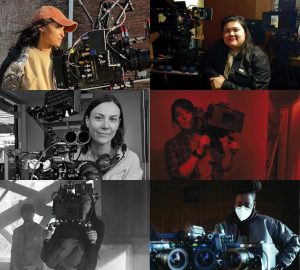
Image by: Yandex.com
The future looks promising for female filmmakers. As more people advocate for equality in the film industry, we can expect to see even more women behind the camera. New platforms and streaming services are also creating opportunities for diverse stories to be told. With the support of audiences and industry leaders, female filmmakers will continue to shape the future of cinema, making it richer and more inclusive.
Analysis Table: Key Strengths of Featured Female Filmmakers
| Filmmaker | Strengths | Notable Work |
|---|---|---|
| Greta Gerwig | Emotional depth, empathy | Lady Bird, Little Women |
| Ava DuVernay | Social awareness, activism | Selma, When They See Us |
| Chloé Zhao | Realism-fantasy blend | Nomadland, Eternals |
| Lulu Wang | Cultural identity focus | The Farewell |
| Emerald Fennell | Dark humor, bold themes | Promising Young Woman |
| Nia DaCosta | Socially-conscious horror | Candyman |
| Céline Sciamma | Love, identity exploration | Portrait of a Lady on Fire |
| Kathryn Bigelow | Action, ethical themes | The Hurt Locker, Zero Dark Thirty |
| Marielle Heller | Introspective, character-driven | Can You Ever Forgive Me? |
Comparative Table: Impact of Female Filmmakers on Cinema
| Filmmaker | Genre Focus | Traditional vs. New Approaches |
|---|---|---|
| Greta Gerwig | Drama/Romance | Uses traditional romance to challenge gender roles |
| Ava DuVernay | Social Drama | Fuses art with activism, addressing historical issues |
| Chloé Zhao | Indie/Fantasy | Mixes realistic indie style with mainstream fantasy |
| Lulu Wang | Family/Culture | Brings lesser-seen cultural stories to wider audiences |
| Emerald Fennell | Thriller/Dark Comedy | Pushes boundaries with unconventional themes |
| Nia DaCosta | Horror | Modernizes horror with social themes |
| Céline Sciamma | Romance/Drama | Focuses on subtle, character-driven romance |
| Kathryn Bigelow | Action/War | Integrates intense action with ethical perspectives |
| Marielle Heller | Biography/Drama | Emphasizes introspective storytelling |
Conclusion: A New Era in Cinema
The contributions of these female filmmakers are proof that cinema is moving towards a more inclusive and dynamic future. By embracing diverse voices and perspectives, these directors are not only telling unique stories but are also encouraging a new generation to pursue filmmaking. With their talent and innovation, they are reshaping what we see on screen and how we understand the world through film.

